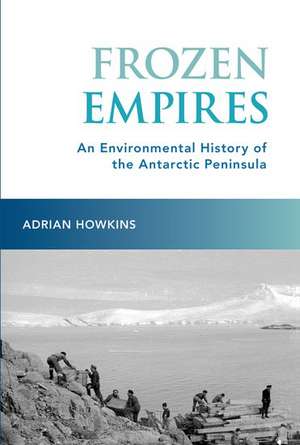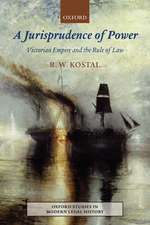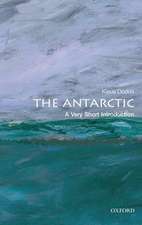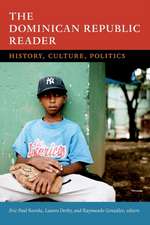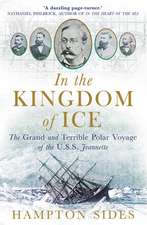Frozen Empires: An Environmental History of the Antarctic Peninsula
Autor Adrian Howkinsen Limba Engleză Paperback – 5 ian 2021
Perpetually covered in ice and snow, the mountainous Antarctic Peninsula stretches southwardd towards the South Pole where it merges with the largest and coldest mass of ice anywhere on the planet. Yet far from being an otherworldly "Pole Apart," the region has the most contested political history of any part of the Antarctic Continent. Since the start of the twentieth century, Argentina, Britain, and Chile have made overlapping sovereignty claims, while the UnitedStates and Russia have reserved rights to the entire continent. The environment has been at the heart of these disputes over sovereignty, placing the Antarctic Peninsula at a fascinating intersection between diplomatic history and environmental history. In Frozen Empires, Adrian Howkins argues that there has been a fundamental continuity in the ways in which imperial powers have used the environment to support their political claims in the Antarctic Peninsula region. British officials argued that the production of useful scientific knowledge about the Antarctic helped to justify British ownership. Argentina and Chile made the case that the Antarctic Peninsula belonged to them as a result of geographical proximity, geologicalcontinuity, and a general sense of connection. Despite various challenges and claims, however, there has never been a genuine decolonization of the Antarctic Peninsula region. Instead, imperial assertions that respective entities were conducting science "for the good of humanity" were reformulated through the terms ofthe 1959 Antarctic Treaty, and Antarctica's "frozen empires" remain in place to this day. In arguing for imperial continuity in the region, Howkins counters the official historical narrative of Antarctica, which rests on a dichotomy between "bad" sovereignty claims and "good" scientific research. Frozen Empires instead suggests that science, politics, and the environment have been inextricably connected throughout the history of the Antarctic Peninsula region—and remain so—and showshow political prestige in the guise of conducting "science for the good of humanity" continues to influence international climate negotiations.
| Toate formatele și edițiile | Preț | Express |
|---|---|---|
| Paperback (1) | 168.59 lei 31-37 zile | |
| Oxford University Press – 5 ian 2021 | 168.59 lei 31-37 zile | |
| Hardback (1) | 313.17 lei 10-16 zile | |
| Oxford University Press – 5 ian 2017 | 313.17 lei 10-16 zile |
Preț: 168.59 lei
Preț vechi: 189.13 lei
-11% Nou
32.26€ • 33.56$ • 26.64£
Carte tipărită la comandă
Livrare economică 01-07 aprilie
Specificații
ISBN-10: 0197533558
Pagini: 304
Ilustrații: 25 illus.
Dimensiuni: 231 x 155 x 20 mm
Greutate: 0.48 kg
Editura: Oxford University Press
Colecția OUP USA
Locul publicării:New York, United States
Recenzii
Drawing upon archival research conducted in Argentina, Britain, Chile and the USA, [Howkins] offers an alternative, highly illuminating, environmental and imperial perspective from which to view the [Antarctic] peninsula's history.... Its story offers interesting insights into British history, most notably concerning conservation, economics, empire, law, politics and science.
Deeply researched, well written, and strongly recommended for students and scholars, especially those interested in how Antarctica's political past may be prelude to humankinds environmental future.
Notă biografică
Adrian Howkins is Associate Professor of History at Colorado State University.
